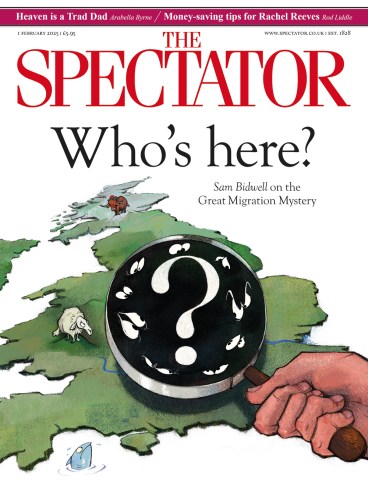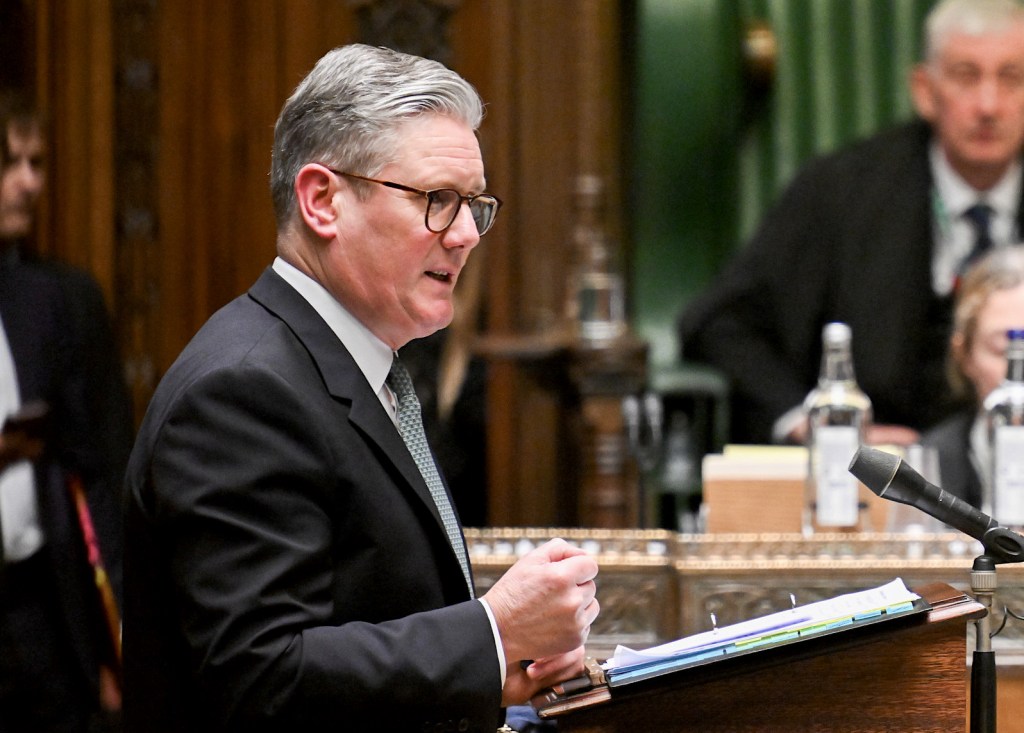
Social media benefit from creating continuous belligerence in politics. For them, Donald Trump is the perfect politician. As I wrote last week, I think he is doing exciting things and I feel relieved that Kamala Harris lost. But it is impossible to support everything Mr Trump says or does. He never regards himself as bound by what he has previously said, so why should his followers seek to justify each piece of Trumpery? Since his victory in November, I have noticed several otherwise intelligent friends, all of them men, going crazy-culty about the dawning era – defending, for example, the removal of the security detail of Mike Pompeo, John Bolton and Brian Hook, or his pardon for all those convicted in the 6 January riots. It is nasty score-settling. Dear Trumpists, please look through these heady days to the pitfalls ahead. I would not like to predict either ultimate triumph or ultimate disaster over the next four years, but you can be certain that both will stalk this administration. I know one is supposed to ‘treat those two impostors just the same’, but one must also be able to identify the difference between them.
One of the well-known problems with doing business in Third World countries is that one must sign up an ‘in-country partner’ to do so. This is usually a patronage mechanism for rulers of such places, guaranteeing great wealth for their family or associates. Will the United States now go that way? No sooner did the Supreme Court order TikTok to sell up at once than President Trump was there with a better offer – three months’ grace and possibly a 50-50 sale to Elon Musk.
Brian and Maggie, a two-part drama by James Graham about Brian Walden’s final, sensational interview with Margaret Thatcher in 1989, aired this week on Channel 4. Its underlying theme is one of telly triumphalism – that the long-form political interview is a wonderful thing which, through Walden (Steve Coogan), explained and eventually brought down Mrs T (Harriet Walter): now it no longer exists, politicians have got worse. As Mrs Thatcher sits on the front bench, enduring Geoffrey Howe’s resignation statement, she glances up at the television cameras whose entry into the Commons she opposed, and glares. This thesis is not credible. But one should not let one’s disbelief spoil the rest of the story, which is a well-acted portrait of the protagonists, drawn together – despite their mutually adversarial occupations – by their upward mobility, work ethic and resentment of grand persons who try to hold them back.
I have seen enough of such productions to accept one cannot be both historically accurate and dramatically satisfying, so one should not complain at the telescoping of events. The drama’s one serious factual alteration is that Graham gets Bernard Ingham and Alan Walters to deliver the toasts at Mrs Thatcher’s tenth anniversary in office. They call for her to go on forever. The truth is more interesting. The person who actually delivered the eulogy was Geoffrey Howe who, earlier that very same day, had met Nigel Lawson to plot the sequence which led to her downfall. The one serious artistic error was to show a tiny clip from a real Walden/Thatcher interview. This was a reminder that the thing itself was even more exciting than the play.
Please forgive some pedantry about words and expressions used in the programme. In the 1970s and 1980s, no one said ‘I’m good’ meaning ‘I’m well’, or did things ‘over and over’ (it was ‘over and over again’). The word ‘reveal’ (as in ‘a dramatic reveal’) was never a noun. Ian Gow, Mrs Thatcher’s PPS, never said ‘I’m getting your take on it’, and she would never have used the words ‘blag’ or ‘tequila’. (Nor would Gow have said ‘He stinks of booze’, as if that were reprehensible. ‘Cars run on petrol,’ he used to say. ‘I run on alcohol.’)
When I was a boy, we sometimes stayed with my uncle, the great naturalist Norman Moore, and his family in their farmhouse in Swavesey, near Cambridge. It was so long ago that we used to cross the Thames on the Tilbury ferry, there being no Dartford Tunnel. In those days, the fens stretching away to the east were still a place apart, their beauty consisting not so much in their features as their remoteness. When I went up to Cambridge in 1975, some of that lingered. Now, although there are still lovely places like Wicken Fen, which Norman did so much to save, that remoteness is gone. The dual-carriageway A14 roars by. At the other end, too, of what is now called the ‘Oxford-Cambridge Arc’, I can remember when Bicester was just a dull little town. Now it is also a gigantic ‘Village’ with its own spacious railway station, through which pass hundreds of thousands of Chinese shoppers. I cannot pretend to like these changes, but if you aggregate them you can see why it is high time to let rip and allow a ‘supercluster’ of hi-tech, light industry, transport infrastructure and new housing linking the two ancient universities, with London then making the third part of the ‘knowledge economy’ triangle. Even with strict planning controls, a rural area can be stealthily overwhelmed by social and economic change. This has happened over those 100 miles, bringing more prosperity. Rachel Reeves’s plan, announced on Wednesday, is right to try to make the most of that change rather than fighting vainly for a beauty too fragile to survive.
HMS Agincourt is to be renamed HMS Achilles, the Royal Navy apparently forgetting that Achilles had a heel. The reason is French sensitivities. But think of this the other way round. Suppose the French navy decided to name one of their ships FS Castillon. By defeating my gallant ancestor John Talbot, Earl of Shrewsbury, at that battle, France was said to have won the Hundred Years’ War. Would we be offended? I think we would be amused. Has anyone established that the French actually mind?








Comments